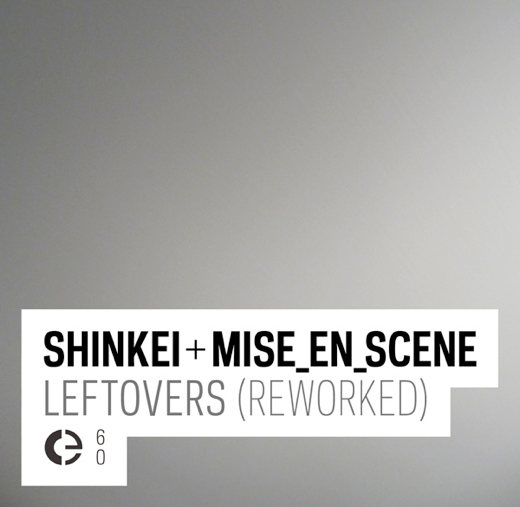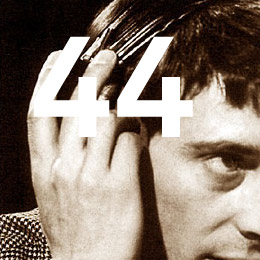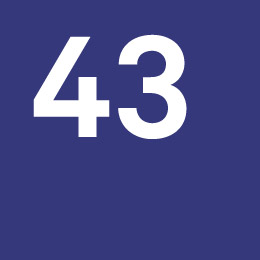
Crónica is very proud to present “Leftovers (Reworked)â€, a compilation featuring new works from Andy Graydon, Ben Owen, Ed.s, Federico Monti, Keizou Nedu, Nicolas Wiese, Pierre Gerard, Seventeen Migs of Spring + Mise_En_Scene, Simon Whetham, Steinbrüchel, Terje Paulsen, Weiss, Will Long, Yann Novak and Zimoun, available as a free download.
“Leftovers (Reworked)†is a consequence of “Scytaleâ€, the Shinkei + Mise_En_Scene release on the Japanese label mAtter. During its preparation, some of the tracks were edited out due to space constraints. They were later released as “Leftover_1†on Dragon’s Eye Recordings and were further reworked with guest artists to originate the present compilation.
David Sani (Shinkei) was born in 1968 in the heart of Tuscany, Siena. In 2000 he started Microsuoni, mail-order and distribution of sound-art, focused mainly on minimalism in all its forms. After the encounter with composer Luigi Turra in 2008, they founded the Koyuki label, devoted to publish lowercase and minimal sound compositions in limited edition CDs or digital downloads. Shinkei likes to play with the perception of sound, moving on the edge of audibility, exploring the empty spaces between sounds. Usually a new project is developed with each release to experiment with different, unusual sound sources: computer simulated brainwaves, recordings of biological signals, or the snow falling over a microphone…
Mise_En_Scene is Shay Nassi from Tel-Aviv, Israel. Shay (1977) began to study sound engineering at the Jordan Valley College, where he gained a degree in Practical Sound Engineering. Shay produces experimental sound built from different layers such as wave tones, noise, field recordings, and live instrument recordings which when manipulated create a cohesive work of minimal, ambient drone sound. He currently studies at the music technology program and studio at the Bar Ilan University Music department.
Andy Graydon was born and raised in Maui, Hawaii and originally trained as a filmmaker. Both experiences have been influential on his current work, which is focused on the interaction of media and environment in the forming of personal and social subjectivities. Much of this work uses cinema and pseudo-cinematic forms, including sound, to address concerns familiar to environmental art, while extending concepts of the environment to encompass the role of mediation in constructing and modulating natural and built environments, as well as “the environmentâ€, or the ground of our existence. Graydon describes many of his projects as “science fiction ecologiesâ€.
Ben Owen is an American sound artist based in Brooklyn, NY. He is an investigator, explorer and illustrator of the physical properties of the world we inhabit. His work crosses multiple media and is motivated by a desire to more deeply understand the inner life and character of the materials he works with, rather than an impulse to control or implement them. Ben’s current work includes improvised and graphic score based performance, audio and video collaborations.
Ed.s is Moscow-based Vadim Ougrioumov, active in various projects: Motor is the minimal techno side (with releases on Audio.nl and Kuro Neko Music); with Ed.s and the misterious Quiet Zone label he explores ultra-minimalism, field recordings, and the most radical experiments in sound and silence.
Argentina born but currently living in Barcelona, Federico Monti established a cult following through a series of excellent releases (in Impulsive Habitat, CONV, Discos Noise, Storung, Homophoni, Koyuki…). His music explores the extreme frequencies of the micro sound realms, sometimes indulging into more traditional techno or ambient styles.
Keizou Nedu (Tokyo 1986) works in the fields of graphics, web design and conceptual digitalis. His most recent works include “erase_Spectragramâ€, “m/r/iâ€, and “People pretending to be a subject†(SSS web magazine). His art is a cross pollination of the Fehler/Fallt digital genius with a japanese minimal sensibility, with master Ryoji Ikeda lurking from behind.
Nicolas Wiese was born in Itzehoe/Germany in 1976. He is a visual artist, sound artist and graphic designer, based in Berlin. In 2005, Wiese graduated in Communication design at the design department of HAW Hamburg. He also studied experimental sound design at the University of Arts in Berlin, as well as Sociology and Philosophy at the University of Hamburg. Wiese creates works in various media and formats, for different contexts, installation and spatial performance, contemporary electronic composition, relational music, graphic art, radio and experimental film. His electroacoustic sound works are being released by labels and organizations around the world since 2003; and there have been numerous broadcasts on public and non-commercial radio stations worldwide.
Pierre Gerard (1966) lives and works in Liège, Belgium. After the high school of art, he soon became interested in the more silent and minimalist forms of music, starting to explore the acoustic qualities of objects and the use of field recordings in the context of music composition. A parallel research in photography and objects, focused on the meeting between the human gesture and the form (organic, natural or accidental & minimalist) complete the spectrum of his artistic interests. Gerard’s music has been published by labels such as Trente Oiseaux, Dragon’s Eye, Koyuki, White_line and Winds Measure.
Seventeen Migs Of Spring (1999 – 2010). pioneers of the Israeli experimental electronic scene and one of the best live electronic acts that came out of this country, with more than 20 releases and several concerts in Israel and in Europe. Their sinister soundscapes are generated in the physical domain, with indistinct noise-making devices, the majority electronic components of their sound are orchestrated by means of banks of interconnected equipment. Their music leans towards warm, analogue dub trips, punctuated with digital glittery, tech and IDM influences. The overall effect is a pleasingly hypnotic mixture of different, often conflicting cultural, philosophic and music influences.
Simon Whetham is a british composer, installation artist and
designer. “I attempt to bring the listener’s attention to sounds not normally noticed. It is easy to miss, or dismiss, beautiful and strange sounds that constantly surround us. The eye being the primary receptor of information is a concept I work against. A sound without a visual context becomes an abstract, often unidentifiable entity, leading one to reconsider the importance of sound in an environment. Sound can trigger memories and emotions beyond our control, and it is difficult to shut sound out. Unlike closing or averting our eyes when we do not want to see, we are unable to close our ears, such is the power of sound.â€
Ralph Steinbrüchel, born in 1969, studied Communication
Design at Central Saint Martins School in London, where he acquired a Masters of Arts and Design with distinction. He lives and works as a musician and graphic designer in Zürich, Switzerland. Steinbrüchel’s musical work deals mainly with the texture and atmosphere of sound. The sounds one hears in his music form intricate patterns and spacious landscapes where he portrays an acute awareness for beauty. His productions follow a distinctly sophisticated aesthetic, flowing calmly through the listener and invoking a glowing space which invites the listener to travel within the sound.
Terje Paulsen is a sound artist from Kristiansand, Norway, operating in the field of experimental music; acoustic, electroacoustic & electronic. “Working with simple tools, my project has been to make and collect sounds in my house and the immediate local environment. I use contact microphones, digital recorder and other cheap microphones. Found objects are also important parts in my compositions, that be a scrap toy car, floor lamp, dried leaves or a piece of wood. I also use instruments like 4- and 12-string bass guitars, 3-stringed guitar, flutes and a mouth organ. Often the compositions – or the sound pictures – are a study of one object, worked with in a software-editor. The compositions often comes to life through improvisations – deconstructed & reworked.â€
Weiss is Martin Weiss. Born 1966. Lives in Nuremberg/Germany. His work oscillates around the generation and manipulation of sound though sound files with various techniques. He also runs the Electroton label.
Will Long is a published writer of fiction, non-fiction, and poetry, having studied English, History, Creative Writing, Philosophy, and Literature, with a basic background in music. He is/was one half of Celer, the sound, visual, literary, and artistic endeavor with his wife Danielle Baquet-Long. They produced numerous custom, handmade self-releases, sound for installations and art exhibitions, as well as works for independent labels in North America, Japan, and Europe. Their intent was producing works that reflect the sincere nature and importance of love, the impermanence of life, and the spirit of togetherness, through a relative and absolute symposium of expression. As of July 2009, following the untimely death of Dani, all production of new works is ended. However, works completed before this time will continued to be published, as of which there are many, and will appear on many labels worldwide, as well as some to be self- published in the future. While an end to new production of works was not wished, it was necessary, as Celer was, and will always be Dani and Will.
Yann Novak (1979 Madison, WI) is a sound artist, composer and designer based in Los Angeles. His compositions have been published by Dragon’s Eye Recordings, Dulcett Records, The Henry Art Gallery, Infrequency, Mandorla and smlEditions. His work utilizes different forms of digital documentation as a point of departure. Through the digital manipulation of these sound and image files, his works serve as a translation from documents of personal experiences into new compositions fueled by the original experience. Novak’s installations and performances have been presented internationally at prestigious events and venues. In 2005, Novak re-launched his father’s Dragon’s Eye Recordings imprint with a new focus on limited edition releases by emerging and mid-carreer sound artists, composers and producers. Since its relaunch, Dragon’s Eye Recordings has published over 25 releases and has received critical acclaim. In recent years Novak has collaborated through select installation, performance and recorded work with Gretchen Bennett, Brittle Stars, Crispin Spaeth Dance Group, Jamie Drouin, Marc Manning, Brian Murphy, Alex Schweder and Tiny Vipers.
Zimoun is Simon Hügli, an installation artist born 1977, Bern,
Switzerland. “Using simple and functional components, Zimoun builds architecturally-minded platforms of sound. Exploring mechanical rhythm and flow in prepared systems, his installations incorporate commonplace industrial objects. In an obsessive display of curiously collected material, these works articulate a tension between the orderly patterns of Modernism and the chaotic forces of life. Carrying an emotional depth, the acoustic hum of natural phenomena blends effortlessly with electric reverberation in Zimoun’s minimalist constructions.â€
You can download “Leftovers (Reworked)†as AIFF or MP3 files directly from Crónica and free of charge. Donations are welcome! :)








